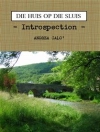Conservation needs a revolution. This is the only way it can contribute to the drastic transformations needed to come to a truly sustainable model of development. The good news is that conservation is ready for revolution. Heated debates about the rise of the Anthropocene and the current ‘sixth extinction’ crisis demonstrate an urgent need and desire to move beyond mainstream approaches. Yet the conservation community is deeply divided over where to go from here. Some want to place ‘half earth’ into protected areas. Others want to move away from parks to focus on unexpected and ‘new’ natures. Many believe conservation requires full integration into capitalist production processes.
Building on a razor-sharp critique of current conservation proposals and their contradictions, B�scher and Fletcher argue that the Anthropocene challenge demands something bigger, better and bolder. Something truly revolutionary. They propose convivial conservation as the way forward. This approach goes beyond protected areas and faith in markets to incorporate the needs of humans and nonhumans within integrated and just landscapes. Theoretically astute and practically relevant, The Conservation Revolution offers a manifesto for conservation in the 21st century – a clarion call that cannot be ignored.
Over de auteur
Robert Fletcher is Associate Professor in the Sociology of Development and Change group at Wageningen University in the Netherlands. His research interests include conservation, development, tourism, climate change, globalization and resistance and social movements. He is the author of Romancing the Wild: Cultural Dimensions of Ecotourism (Duke University Press, 2014) and co-editor of Nature TM Inc.: Environmental Conservation in the Neoliberal Age (U of Arizona Press, 2014) and Lessons from the Ecolaboratory: Negotiating Environment and Development in Costa Rica (U of Arizona Press, forthcoming), having also written more than sixty academic articles and book chapters. He is co-Editor-in-Chief of Geoforum and Associate Editor of Conservation & Society.












